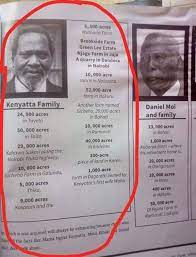LATEST HOT NEWS IN THE ROOM
Registration of a charitable trust or foundation in Kenya
- Get link
- X
- Other Apps
Registration of a Charitable Trust or Foundation in Kenya
Black Law dictionary defines a Charitable Trust as One in which property held by a trustee must be used for charitable purposes (advancement of health, religion, etc.). Fiduciary relationship with respect to property arising as a result of a manifestation of an intention to create it, and subjecting the person by whom the property is held to equitable duties to deal with the property for a charitable purpose.
Advantages of establishing a charitable trust
- Tax Savings. By transferring assets to a charitable trust, you can often minimise income tax, capital gains, and estate taxes that would otherwise need to be paid by you or your estate.
- Asset Protection. Since assets that you transfer to a trust are no longer considered your property, establishing a trust can help shield your charitable gift from the risk of loss, should you face a lawsuit or incur another substantial liability.
- Enhanced Certainty. Most forms of trusts are recognized by state and federal courts around the country, and you can use your trust documents to establish clear rules around your charitable donation. As a result, when you use a trust for your charitable giving, you can feel confident that your final wishes will be carried through.
Disadvantages/Limitations of Charitable Trusts
- When establishing a trust for charitable purposes, the trust will often need to be irrevocable. This means that you will not be able to pull assets back out of the trust should you need to do so in the future.
- Cost implications- There are costs involved with establishing a trust as well, though these costs will often be offset by the tax benefits involved.
Registration of a charitable trust or a foundation in Kenya generally requires the following:
- Name of the Trust or Foundation
- Main Objective of the Trust. Charitable trust must fall in at least one of the following categories:
- Relief of poverty e.g. homes & orphanages, hospitals
- Advancement of education
- Advancement of religion
- Advancement of Health or saving of lives
- Advancement of environmental protection or improvement
- Trusts beneficial to the community not falling under the preceding heads e.g. advancing art, culture, racial harmony.
- Name of the Settlor/ Donor– Full name, copy of ID card/passport; If it’s a company, a copy of the certificate of registration
- Proposed physical address of the trust or foundation
- Domicile and residence of the trust or foundation
- A Trust Deed
- Description of beneficiaries: this could be a class of persons in the society e.g. bright needy children; orphans between 0-10 years or an orphanage, cancer patients, women etc. There is also need to specify the area of benefit e.g. Nairobi, Kenya or Africa.
- Trust Fund
- A list of assets held by the trust/ in the absence a deed of donation indicating the properties to be donated to the trust
- A letter/statement from the donor stating his commitment
- The transfer of properties/ funds may be progressive but indicate the initial amount/properties to be transferred
- The Trustees: the trustees should show competence in running the trust. For example if it an Education Trust, then some should have a background of teaching etc. The following information from the trustees is required;
- Names and addresses in full.
- Passport photos of the trustees
- Copies of Pin certificates of Trustees
- Copies of national ID or Passport.
- Curriculum vitae of the trustees
- Statement of their accounts
- Minutes appointing the trustees
- Petition to the minister
- Seal of the trust
- Statement of donor funding where applicable.
- Financial statement of the trust or foundation
- Administration of the Trust:
- Consider whether standard procedures are appropriate or are there any special administrative procedures required. This includes the following;
- Appointment of trustees
- Operation of Trust accounts
- Powers of the trustees
- Procedure of conducting meetings
- Amendment of the Trust deed
Procedure for Registration of a Charitable Trust in Kenya.
- Preparation of trust deed
A trust deed must be prepared. It contains the name of the trust, the objectives of the trust, the names in full and addresses of the trustees including powers of the trustees to change and appoint other trustees.
- Payment of Stamp duty
The trust document duly signed by trustees is submitted for stamp duty.
- Registration
Registration may involve two stages
- Registration under the Registry of Documents Act.
- Incorporation under the Perpetual Successions Act.
Registration under the Registration of Documents Act in Kenya
The process may take 1-3 weeks. Registration under the RDA does not make a trust into a body corporate trust yet. However, the trust can commence implementing the objects of the trust as a simple trust.
Incorporation under the Trustees (Perpetual Succession) Act
After registration under the registry of documents, a certified copy of trust deed and a petition for incorporation is lodged with the ministry of lands for incorporation of trust. The Trust may be incorporated under the TPSA, making it a body corporate. In the petition, it must be stated that the trustees require incorporation of a trust and provide a representation of the common seal of the trust, which is round in shape with the name of the trust inscribed.
The process takes an average of 3 to 6 months to the issuance of a certificate of Incorporation.
For registration of a charitable trust in Kenya, please contact us info@capitaregistrars.co.ke
Our Office
Royal Offices, 1st Floor, Suite No.17 Mogotio Road, Off Chiromo Lane, Westlands Nairobi, Kenya.
- Get link
- X
- Other Apps
TOTAL PAGEVIEWS
YOU CAN ALSO SEE MORE IN OUR POSTS
Generational shifts
Uhuru secret team to fix succession by 2022
Is the mission Impossible Implementing the Ndung’u Report in kenya?
Uhuru clueless about PS reshuffle list?
How Idi Amin took Uganda to the brink of war in 1976 after attempts to annex parts of Kenya Territory
Komodo Dragon
Victor Wanyama Foundation scholarship beneficiaries undergo mentorship
Time has come that I must speak the truth
Rachael Ruto commercializes her hobby so as to help women
SOCIAL AND EQUALITY TO ALL

My main agenda is adopting a Gramscian theoretical framework, the five parts of this volume focus on the various ways in which the political is discursively and materially realized in its dialogic co-constructions within the media, the economy, culture and identity, affect, and education. We focus at examining the power instantiations of sociolinguistic and semiotic practices in society from a variety of critical perspectives, this blog focus at how applied political linguists globally is responding to, and challenge, current discourses of issues such as militarism, nationalism, Islamophobia, sexism, racism and the free market, and suggests future directions. No peace, no unity, no coexistence hence all becomes vanity...! It's why the world is oval.









Comments